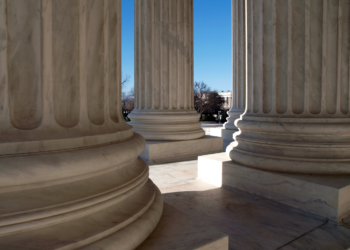Strategies lawyers often use to prepare for a civil trial can drive up costs to clients and make those lawsuits more complicated and time-consuming than necessary, according to a Case Western Reserve University law professor.
In a new research paper published in the Fordham Law Review, Case Western Reserve Professor Andrew Pollis suggests changing the judicial system to eliminate what he characterizes as a “pretrial industry” – litigation abuses that exists to maximize billable hours.
“Most of the action takes place in the pretrial phase, which consists mainly of filing motions and discovery,” Pollis said.
Lawyers in civil cases sometimes try to drive up costs of opposing counsel as a settlement strategy, Pollis said. In his published article, “Busting Up the Pretrial Industry,” he suggests reforms that could upend the legal system as we know it if widely accepted and applied, he said.
To address pretrial abuses that can drive up legal fees and complicate the process, Pollis suggests:
• Appointing “special masters” to resolve discovery disputes and requiring the party losing the dispute to pay the special masters’ fees, thus discouraging abuses.
• Using summary jury trials, where lawyers summarize their cases to juries who issue nonbinding verdicts but whose verdicts guide the parties to settlement. Parties could then choose to reject the results and proceed to discovery and a full-blown trial. But unless the result is better, they would be liable for their adversary’s attorney fees.
“By regularly appointing special discovery masters, we can provide supervision over the discovery process,” Pollis said. And by encouraging summary jury trials, “the justice system can offer litigants a day in court that will arm them with important information about the strengths and weaknesses of their cases, which, coupled with risk of proceeding to trial, should foster more settlements.”
Pollis anticipates opposition to his suggested changes from lawyers intent on preparing a case thoroughly and from law professors who believe the costs of special masters and summary jury trials would be too high. But he believes his proposed cost-shifting mechanisms meets those criticisms.
“We can put an end to the pretrial industry, or at least reduce its magnitude,” Pollis wrote. “The question remains whether we truly have the determination to do it.







